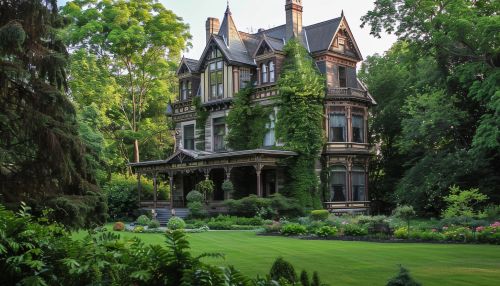Bertrand Russell
Early Life
Bertrand Arthur William Russell was born on 18 May 1872 at Ravenscroft, Trellech, Monmouthshire, into an influential and liberal family of the British aristocracy. His parents, Viscount and Viscountess Amberley, were radical for their times. Lord Amberley consented to his wife's affair with their children's tutor, the biologist Douglas Spalding. Both were early advocates of birth control at a time when this was considered scandalous.


Education
Russell was educated at home by a series of tutors. His brother Frank introduced him to the work of Euclid, which transformed Russell's life. In 1890, after his family had stopped his studies for a year to prevent his breakdown, he entered Trinity College, Cambridge, where he became acquainted with the younger G. E. Moore and came under the influence of Alfred North Whitehead, who recommended him to the Cambridge Apostles.
Philosophical Work
Russell is generally credited with being one of the founders of analytic philosophy. He was deeply impressed by Gottfried Leibniz and wrote on every major area of philosophy except aesthetics. He was particularly prolific in the field of metaphysics, the philosophy of science, and the philosophy of language, and made significant contributions to logic, the theory of knowledge, and the philosophy of mathematics.
Political Activism
Russell was a prominent anti-war activist; he championed free trade and anti-imperialism. Russell went to prison for his pacifist activism during World War I. Later, he campaigned against Adolf Hitler, then criticised Stalinist totalitarianism, attacked the involvement of the United States in the Vietnam War, and was an outspoken proponent of nuclear disarmament.
Personal Life
Russell married four times and had three children. His first marriage was to the American Quaker Alice Alys, but he later admitted he had married her mainly out of a sense of duty. His second marriage was to Dora Black, a British author and feminist, with whom he had two children. His third wife was Patricia Spence, his children's governess. His fourth and final marriage was to Edith Finch, an American Quaker and historian.
Legacy
Russell's philosophical work has had a considerable influence on logic, mathematics, set theory, linguistics, artificial intelligence, cognitive science, computer science and various areas of analytic philosophy, especially philosophy of language, philosophy of mathematics and epistemology. He was awarded the Nobel Prize in Literature in 1950 "in recognition of his varied and significant writings in which he champions humanitarian ideals and freedom of thought."
